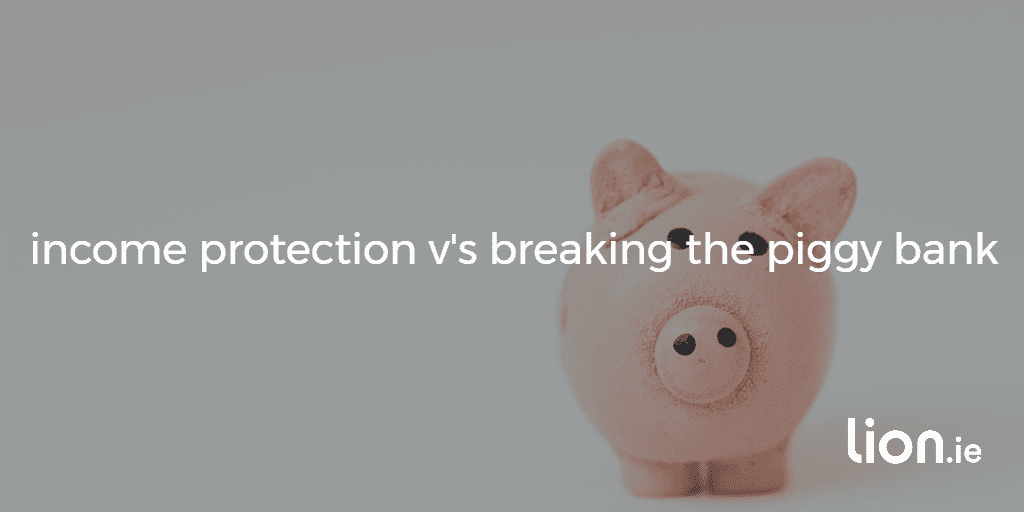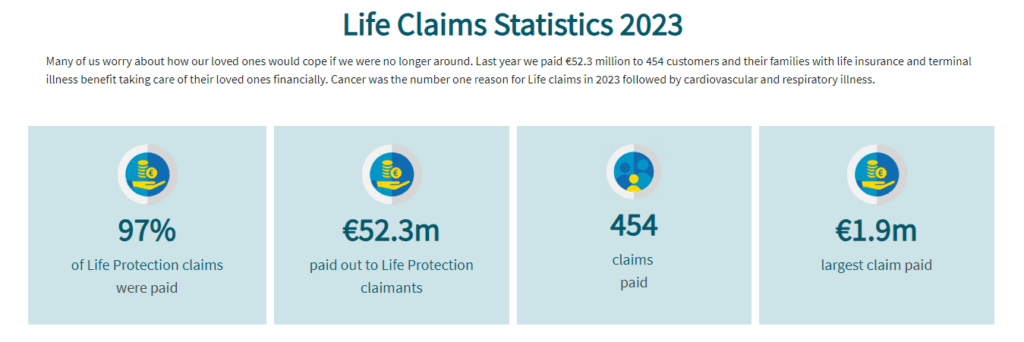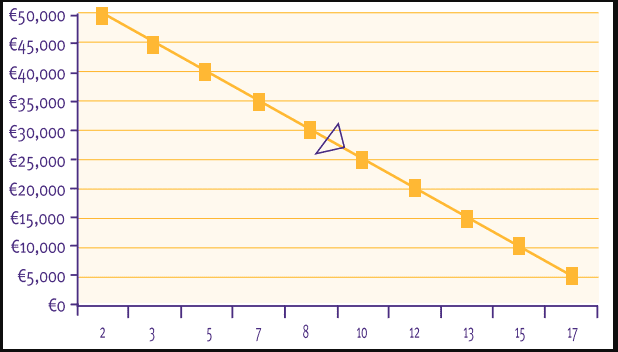Are There Any Useful Alternatives to Income Protection?


The thing about claims is that people have wildly incorrect opinions about them.
Even people with life insurance think it’s a bit of a con.
And I get it, I do: it feels like a gamble paying a faceless company a chunk of money every month, hoping your family get paid if you die.
But over 97 per cent of all Life Insurance claims are paid out—and if they’re not, it’s usually the applicant’s fault for lying on their application form.


When it comes to Income Protection, people out on a claim cannot work for an average of five and a half years.
Imagine having no income for that length of time.
Seriously, take a minute and watch your current standard of living crumble into tiny pieces all around you.
What is Income Protection, and why is it the very best?
Income Protection, outright, is the best way you can protect yourself from whatever life throws at you.
No messin’, no foosterin’.
This insurance is worth its weight in gold because it pays you up to 75 per cent of your salary if you’re unable to work long-term due to illness, and the beauty is that it pays out UNTIL YOU GET BACK TO WORK.
It’s better than Serious Illness Cover (SIC) because SIC only pays out for a certain amount of illnesses.
SIC is a one-and-done tax-free lump sum, so when it’s gone, it’s gone.
You’d be surprised how quickly you’ll burn through said lump sum if you have no income coming in for years.
And remember, you have to get a specific illness covered in your policy to qualify for a payout in the first place!
And, sure, Life Insurance is the biz – especially if you have kids – but it’s never really all that much use to you, the insured, because you have to die to receive it.
Which, you know, bit of a buzzkill.
I’d go so far as to say that Income Protection is even more critical than pensions, investments and savings.
You’re probably thinking, “Jaysis now, there’s the insurance broker making his pitch to get my money.”
And while I do like business and making money. The one thing you’ll see about the team at lion.ie is that we don’t do bullshit.
We’re not here to make a fast buck; we’re here to help long-term clients get policies that will actually protect them.
So, let’s look at this in real terms.
Joan is 45 and an accountant.
She’s got a lovely husband called Bill.
Joan is in an awful car crash and has health complications and depression.
Poor Joan can’t return to work, so she’s facing several years on the sidelines.
Her salary is €50,000.
Let’s say it takes her five and a half years to get healthy enough to return to work (remember: this is the average length of a claim).
She’s looking at losing out on €275,000 in earnings (that €50,000 x 5.5).
That’s a lot of money.
Realistically, it’s someone’s entire life.
It’s rent, the mortgage, bills, food, water, clothes, and fun stuff.
It’s everything.
And most households can’t afford to take a hit like that.
Especially when State benefits are €232 a month…for two years.
Money is the last thing Joan needs to be thinking about as she recovers, but it’s bound to take a significant toll on her and lovely Bill.
So, she and Bill are now down a significant amount of money.
How is she going to save?
Or invest in her pension?
Or pay for her Life Insurance?
It’s all going to grind to a halt.
Sounds fairly grim so far, doesn’t it?
In reality, it was worse; Bill, bless him, gave up his own job to become a full-time carer for Joan.
Their income plummeted.
Thankfully they had cleared their mortgage already, accountants are a savvy bunch.
But what if Joan had Income Protection?
Thanks to that cushion, she could continue to save, invest, and pay for her other insurance.
Bill could be her carer, knowing a decent income was still coming into the house.
Now, do we agree on how vital an Income Protection plan is?
If not, watch Marc’s story.
But are there alternatives to Income Protection?
Sure, but they’re not nearly as good.
It’s like wanting to drive a big shiny Lamborghini and ending up with a pair of rollers skates instead.
1. Using your savings to cover yourself while you’re out of work long-term
Our pal Joan, being an accountant, is very good with money.
Her pay of €50,000 equals out to about €3,000 take-home, after-tax. She has a considerable kitty of €50,000 saved.
Maybe she’s planning to use it as her pension, or perhaps she’s planning to circumnavigate the planet in a custom-built hot air balloon for two years.
It’s Joan’s money; she can do whatever she likes with it.
So, how long does this big ole nest egg last?
Just 1 year and 5 months.
And if you recall, the average length of an Income Protection claim is five and a half years.
You know I mean business when I break out a beautifully drawn graph.
The y-axis is months, FYI.


Now, this graph shows if Joan spends as she usually would.
But here’s the thing: she shouldn’t have to live frugally.
Beans and rice only become a reality if she doesn’t have Income Protection or appears on #IACGMOOHeeeere
The whole point of saving is to enjoy beautiful things. Feck the rainy day fund; it should be a sunshine fund.
Insure against rainy days instead!
What’s the point of living if you can’t spend your hard-earned spondoolies joyfully?
Your savings shouldn’t be your replacement income.
That’s precisely what Income Protection is for!
2. Your employer offers an Income Protection scheme/really great sick leave
This varies from company to company, so I suggest you give Helen in HR a buzz.
Off you go. I can wait.
Average sick pay entitlements
Public sector: 3 months’ full pay, 3 months’ half pay.
Private sector: 4 weeks.
Self-employed: No sick pay.
Running off to a cushy public sector job is your best bet, but even that well is going to dry up verrrrrry fast.
3. Our pals in the State will cover you
Lol.
Our pals in the State are very good at looking out for themselves and not much else.
Just look at the housing crisis.
I mentioned this briefly earlier, but the State Illness Benefit is limited to €232 a week.
And you can only receive it for a maximum of two years.
4. You have Serious Illness Cover
I mentioned this earlier briefly, but let’s tangle with this devil again here so you understand what you should do next. (In brief: go get yizzerself some Income Protection.)
Serious Illness Cover: Pays a lump sum if you fall sick with one of the illnesses covered in your policy. You need to hit specific terms and conditions on these illnesses, too. Lots of red tape, basically.
Income Protection: This policy pays you up to 75 per cent of your salary if you cannot do YOUR JOB due to ANY medically recognised illness. Pre-existing health conditions may be excluded.
All-caps, pals, because it’s crucial.
Some more reasons why they differ:
The most common claims under Income Protection are for back pain and mental health issues. Critical Illness policies don’t cover back pain or mental health.
Income Protection ensures you have a continuous monthly income until you return to work.
Serious Illness Cover pays out one lump sum. It should be used to cover unexpected bills that occur as a result of your illness: e.g. surgery, prescriptions, travel, modifications to your home.
You can claim back up to 40% of your Income Protection premiums, so it’s more for less, basically.
Here is more detail on the differences between Income Protection and Serious Illness Cover.
Do you have a money machine in your kitchen?
As you can see, the alternatives to income protection aren’t great, so I’ll leave you with this question:
Imagine you had a machine that could print money in your kitchen.
Would you insure it?
Of course you feckin’ would!
If you’d like me to make a recommendation and send you a quote for income protection, please complete this short questionnaire, and I’ll get back to you ASAP.
As for cost, well, let’s say our pal Joan wants to get Income Protection.
She wants to insure the full wedge of 75 per cent, with a waiting period of 8 weeks.
It’s around €55 a month, after-tax relief.
I bet you pay more for the Internet and TV.
Think about it!
Nick
Editor’s Note: We first published this blog in 2020 and have regularly updated it since






